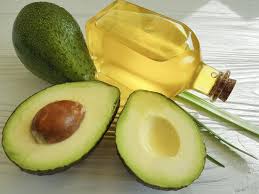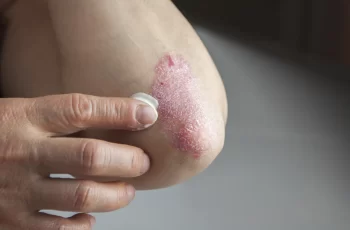
Avocado oil in skin care
Avocado oil (Persea gratissima) is extracted from the pulp of avocados through multiple kinds of organic pressing processes.
It is used in skin care for its hydrating fatty acids, skin lightening properties, and antioxidant capabilities.
The unique fatty acid composition of avocado oil makes it useful and common in many skin and hair care products like these.
What kind of oil is avocado oil?
There are many different classifications of oils in skin care, and avocado oil falls into a couple of categories of them.
Avocado oil is primarily, but not exclusively, composed of unsaturated fatty acids, which means it could be classified as a “dry oil.”
Though it is derived from plants, avocado oil is too thick to be considered an essential oil; it is instead considered a carrier oil by those classifications.
The active compounds in avocado oil are great for hydrating skin, aiding with ingredient absorption, and treating dark spots. Here are some of my favorite avocado oil products:
Active compounds of avocado oil
The most significant compound in avocado oil by concentration is oleic acid, a monounsaturated fatty acid. (39)
Oleic acid creates tiny perforations on the skin which helps other ingredients sink in and absorb fully into the skin. Avocado oil has nearly as much oleic acid as olive oil does.
Avocado oil also contains significant concentrations of saturated palmitic acids. Palmitic acids are great for moisturizing the skin and give avocado oil some of its occlusive thickness. This fatty acid can also clog the pores of some particularly sensitive skin types.
Avocado oil even has desirable, anti-inflammatory linoleic fatty acids. Linoleic acid is great for soothing redness and is very good at hydrating the skin..
Antioxidant properties are associated with many of these and other active phenolic compounds like ferulic acid present in avocado oil.
Benefits of avocado oil
Benefits
Because of its fatty acid composition, there are many possible benefits in using avocado oil in your skin care regimen.
The oleic acid in avocado oil works great in combination with ingredients like retinoids to help them absorb more quickly and deeper into the skin.
The moisturizing fatty acids in avocado oil are good for use with other hydrating and soothing ingredients in products like barrier repair moisturizers.
The overall structure of the oil makes it a good occlusive, meaning it could be used in treatments like skin slugging.
It does not contain comedogenic fatty acids like lauric acid, so it is not likely to clog the pores of sensitive skin.
Antioxidants, like those in avocado oil, are used in anti-aging regimens for eliminating free radicals on the skin. (33)
Side effects
Avocado oil does not have any notable potential side effects in skin care besides using it on the wrong skin types. (34)
If your skin is extremely dry, overuse of avocado oil can cause irritation and redness on applied areas due to its high concentration of oleic acid. Its low concentration of palmitic acid can also clog the pores of acne prone skin types.
Is it safe?
Avocado oil is extremely safe to use in skin care in terms of toxicity and odds of allergy.
The EWG rating for avocado oil is “1.” There are no commonly associated concerns surrounding the use of avocado oil.
In skin care, most of the avocado oil used is organically processed because chemical processing removes many beneficial fatty acids. (33)
To find out if avocado oil is right for your skin, take our questionnaire and shop by your skin type!
Take the Quiz
Is avocado oil safe
For specific conditions
Avocado oil is an effective occlusive, moisturizer, and antioxidant used in many skin care products targeting specific conditions such as:
Acne
Avocado oil is safe for use in acne treatments because it is not particularly comedogenic,(12) however specific studies still need to be conducted regarding its effect on acne causing bacteria.
Oily skin types do not usually need to use many, if any, oils in their skin care routine.
Avocado oil might appear in acne products alongside natural antimicrobial ingredients like these five oils:
Bergamot oil
Coconut oil
Jojoba oil
Tea tree oil
Marula oil
Many oils are not good to use on acne-prone skin, so shop by your skin type to help avoid acne breakouts!
Dry skin
Avocado is very commonly used in moisturizers for many skin types.
As an occlusive, many moisturizers benefit from its ability to inhibit transepidermal water loss.
Avocado oil has a high amount of hydrating fatty acids, but its high oleic acid concentration can damage extremely dry skin.
Extremely dry skin types should avoid products with high amounts of oleic acid because it can irritate the skin barrier. (29)
The best oils for dry skin have high linoleic acid concentrations and very low oleic acid.
Five of the best oils for dry skin are:
Borage seed oil
Evening primrose oil
Grape seed oil
Rosehip oil
Sunflower oil
Dark spots
Another common use for avocado oil in skin care is as an ingredient in dark spot treatments, but should be combined with skin lighteners for best results.(34)
As avocado oil is primarily composed of unsaturated fatty acids, it has tyrosinase inhibiting functions that treat dark spots.
Tyrosinase inhibitors are used to treat all kinds of hyperpigmentation like melasma or PIH.
Weak, natural tyrosinase inhibitors are best used in combination with other skin lightening ingredients like hexylresorcinol or licorice extract.
Wrinkles
Natural ingredients with high amounts of antioxidants, like avocado oil, are used in many wrinkle and anti-aging products. (37)
Antioxidants eliminate free radicals on the skin which contribute to skin aging.
Avocado oil is most effective for anti-aging regimens when used alongside more potent anti-aging ingredients like retinoids.
Plant extracts like avocado oil are not typically powerful enough anti-aging ingredients to be used on their own.
Avocado oil vs coconut oil
Avocado oil vs coconut oil
Coconut oils are primarily composed of saturated fatty acids, while avocado oil is primarily composed of unsaturated fatty acids.
The unsaturated fatty acids in avocado oil are tyrosinase inhibiting, they slow the skin’s production of melanin.
Avocado oil is less comedogenic,
The saturated fats in coconut oil are tyrosinase activating, they can assist in the production of melanin and increase the tanning of skin. (35)
Coconut oil does not contain a significant concentration of oleic acid, so it is safe for use on dry skin types.
However, coconut oil contains high concentrations of comedogenic lauric acids, which are great for eliminating bacteria but bad for acne-prone skin.
For hair care, coconut oil is generally used for its protective, heavy, and moisturizing qualities, while avocado oil is light and does not damage curls.
Coconut oil and avocado oil serve very different purposes in skin care based on their drastically different fatty acid compositions.
Which types of products contain avocado oil?
Avocado oil can be found in various product including but not limited to:
Dark spot treatments
Eye rescue serums
Moisturizing creams
Sunscreens
You can check out our full collection of avocado oil products here!


